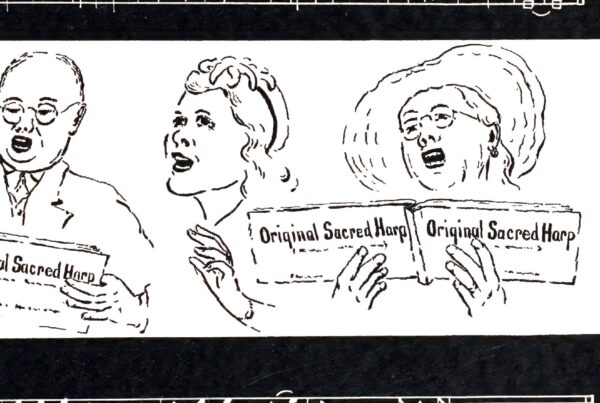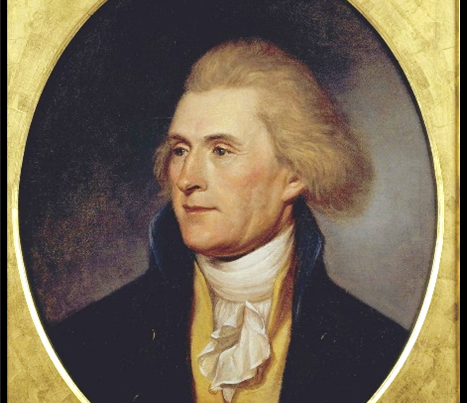A so-called “writer” for al.com, Charles J. Dean, in an article entitled Today Alabama officially observes Confederate Memorial Day: Shame on us seems to be making a living these days off of feeble attempts at denigrating the South by misconstruing the history of the Confederate soldier, his cause and the situation that compelled him to war. This is his second such article in so many weeks.
Says Dean on the occasion of Confederate Memorial Day: “Some 150 years after the South’s bloody effort to break apart the union in order to maintain an economic system dependent on slavery was defeated, why are we still officially honoring those who engaged in treason against our nation?”
This one statement alone exposes the absence of even an elementary level understanding of the history of that era, as well as the nature of our “union.”
First, the South was not trying to “break apart the union.” The idea that it was is indicative of a lack of basic common sense. “The union” would still have existed, but without a handful of Southern States. His statement implies that Southern secessionists were trying to “destroy America” while in reality, the “America” of our founders was built on the Southern view of “union”. Thus, “the union” itself was not the object of loyalty in the foremost concerns of the men who wrote and ratified the Constitution. Union was simply a mechanism to promote trade among the “sovereign” States themselves, and to provide a common defense against foreign aggression. The writer seems to have bought into the nefarious post-Lincoln supposition that, rather than a federal “union”, the Founders gave us instead an indissoluble “nation.” Every evidentiary reading of the debates that formed the “union” proves otherwise, and even Northern States at the time of adoption and ratification of the Constitution contested such nonsense.
John Lansing, for example, said in the New York Ratifying Convention of 1788 that, “Had the legislature of the State of New York apprehended that their powers would have been construed to extend to the formation of a national government, no delegates would have appeared on the part of that State. New plans annihilating the rights of the States can never succeed.”
Likewise, James Madison, in his attempts to sell the Constitution to the people of New York said in Federalist 39 that, “Each State, in ratifying the Constitution, is considered as a sovereign body, independent of all others, and only to be bound by its own voluntary act.”
Dean suffers from a non-existent comprehension of our founding era. An honest writer seeking to promote truth and understanding, rather than dishonest ad hominem, would at least attempt to gain some contextual analysis of his subject prior to spouting off about such issues. Sadly, promoting truth does not seem to be a concern to most who espouse the “pc” view of whatever subject they are attempting to cover.
I wonder if he’s aware that prior to the war abolitionists such as William Lloyd Garrison were promoting secession. Garrison admonished his fellow New Englanders to, “secede … from the government. Submit to its exactions, but pay it no allegiance, give it no voluntary aid. Fill no offices under it. Send no Senators or Representatives to the national or State Legislature.” Said Garrison, there should be “No Union With Slaveholders.”
Would this writer would have accused abolitionists of trying to “break apart the union.” Somehow, I sincerely doubt it.
Second, he injects the idea that the “protection of slavery” was the sole motivation of Southern secession. While some States cited slavery as a cause of secession, to insist that it was the only cause, or the cause of all seceding States, is just willful ignorance. Five States out of thirteen that adopted ordinances of secession named slavery as a cause, while nine others did not. Only in the deluded mind of an unapologetic demagogue does four out of thirteen denote “consensus” and represent the South in total.
Among the five States citing slavery, there were also other causes mentioned that the writer neglects to indicate. Mississippi, for example, said of the union under Yankee control that: “It seeks not to elevate or to support the slave, but to destroy his present condition without providing a better.”
The issue of slavery was complex, and simply turning slaves with no education, no property, and no means of supporting themselves would have been fatal to society and harmful to the slaves themselves. Absent in our writer’s sanctimonious attempts to castigate the South are the efforts at “colonization” (sending slaves and freedmen to somewhere other than the United States) that were sought out by “upstanding” abolitionists of that time.
Mississippi’s secession ordinance continued:
“It has invaded a State, and invested with the honors of martyrdom the wretch whose purpose was to apply flames to our dwellings, and the weapons of destruction to our lives.”
“It has broken every compact into which it has entered for our security.” Likewise, Missouri, while only alluding to slavery in her ordinance, stated among other causes of secession that the government had:
wantonly violated the compact originally made between said Government and the State of Missouri, by invading with hostile armies the soil of the State, attacking and making prisoners the militia while legally assembled under the State laws, forcibly occupying the State capitol, and attempting through the instrumentality of domestic traitors to usurp the State government, seizing and destroying private property, and murdering with fiendish malignity peaceable citizens, men, women, and children.
Virginia, North Carolina, Arkansas and Tennessee initially decided against secession, and changed their positions only after Lincoln’s call for troops for the purpose of invading the South and enforcing her subjugation.
This self-righteous apologist for Lincoln’s crimes conveniently omits these facts.
Third, he equates secession with “treason.” As is most often the case in the minds of folks who have never looked beyond the typical modern comic book version of American history, he displays his complete unfamiliarity with the doctrine of secession.
Secession is not “treason” by any logical definition, and the right to peaceful separation is in fact the foundation of our form of government as found in the Declaration of Independence, our country’s first ordinance of secession. Of that declaration, John Taylor of Caroline said the following in his 1823 treatise New Views of the Constitution:
If the declaration of independence is not obligatory, our intire political fabrick has lost its magna charta, and is without any solid foundation. But if it is the basis of our form of government, it is the true expositor of the principles and terms we have adopted. The word ‘united’ is used in conjunction with the phrase ‘free and independent states,’ and this association recognises a compatibility between the sovereignty and the union of the several states.
Taylor likewise points out that:
The notion that the ‘freedom and independence of the states’ refers to a consolidation of states, admits of a perfect refutation. It would render the language of the declaration of independence ungrammatical, because had this been intended, it ought to have recognised the rights of sovereignty as residing in one consolidated state, and not in several states. It would have rendered the confederation unnecessary; because, had the declaration of independence invested a consolidation of states with a power to do ‘all acts and things which a free and independent state may of right do,’ there would not have existed the least reason for delegating powers to a federal Congress.
Madison had said that the States who were to be parties to the Union by ratifying the Constitution retained their sovereignty and were only to be bound by their “own voluntary act.” By rejecting the right to secession, our esteemed writer is in fact refuting the very philosophy that made America what it was intended to be. His position is wholly incompatible with the intent of the founders, and is “disloyal’ and “unpatriotic” to the principal design of “the union.” Although, due to his blatant historical shortcomings, I’m certain he does not recognize this fact.
Dean continues by stating that “History teaches us that the South was fully aware of why it fought and why so many of its white sons joined to defend a way of life no matter if they had slaves or not, no matter how poor they may have been. Most white southern men who fought knew one thing about their region: no matter their status, they knew they were better than any black. And that would remain the case in the new Confederate States of America”
The assertion here is that “they were risking their lives, their families, their property and everything the held dear because they were ardent, hate-inspired racists who would rather die than allow blacks a position of equality.” In addition to being in total contradiction to human nature, there are mountains of evidence to prove that this assertion is simply untrue. Among the evidence is the fact that roughly 60,000 black men served voluntarily in the Confederate Armies. Were they fighting to defend slavery and to ensure that blacks would never attain equality?
In Mississippi in 1889, a black Representative of Washington County by the name of John F. Harris came from his sick bed to speak in favor of a monument to the Confederate dead of his State. He said:
I was sorry to hear the speech of the young gentlemen from Marshall County. I am sorry that any son of a soldier would go on record as opposed to the erections of a monument in honor of the brave dead. And, Sir, I am convinced that had he seen what I saw at Seven Pines, and in the Seven Day’s fighting around Richmond, the battlefield covered with mangled forms of those who fought for this country and their country’s honor, he would not have made the speech.
When the news came that the South had been invaded, those men went forth to fight for what they believed, and they made no requests for monuments. But they died, and their virtues should be remembered.
Sir, I went with them. I, too, wore the gray, the same color my master wore. We stayed for four long years, and if that war had gone on till now I would have been there yet. I want to honor those brave men who died for their convictions.
When my Mother died I was a boy. Who, Sir, then acted the part of Mother to the orphaned slave boy, but my old Missus! Were she living now, or could speak to me from those high realms where are gathered the sainted dead, she would tell me to vote for this bill. And, Sir, I shall vote for it. I want it known to all the world that my vote is given in favor of the bill to erect a monument in honor of the confederate dead.
As in the case with Dean’s unfamiliarity with the subject of the Union, it is clear that his understanding of the relations between blacks and whites in the antebellum South is also lacking. Of that relationship, a black editor named W. Earl Douglas wrote in 1979 in The Charleston News and Courier that:
If hate had been the prevailing emotion between the races, then it is a safe bet that the Confederacy never would have been born. Fortunately, there was love, understanding and compassion. And the two greatest lies ever perpetrated by history are that the South instigated the war and that it was fought by the North for the purpose of freeing slaves. The Negro was merely used as the excuse for that war, while the real reason for it is reflected in every area of our lives, where the tentacles of government form the bars of a new slavery.
Mr. Douglas makes a sound point. While all of the able-bodied white men were away at war, it was able-bodied black men who stayed behind with the white families. They looked after the families, the farms and generally protected all of the above. One purpose of Lincoln’s “emancipation proclamation” was an attempt at inciting a slave revolt in the Confederate South. As Pastor John Weaver once pointed out, “a thousand torches in a thousand black hands would have emptied the Southern armies.” The Confederate soldiers would have dispersed themselves from the ranks and headed home to protect their loved ones. But during the course of the war, not a single slave rebellion was ever recorded. Why? If as our writer insinuates the Southern man was so cruel, and if as he suggested that “union savagery” did not “surpass what the South had committed against black men, women and children for hundreds of years”, then why did 4.5 Million slaves never rise up in mass revolt either before or after the war? Content to simply buy into his own pre-conceived notions, rather than undertaking any actual study of the era of which he writes, this question never seems to have crossed the mind of our writer.
It is easy to get annoyed and even downright angry at the politically correct mindlessness and arrogance of these writers all across the country. They hurl unfounded, unsubstantiated, and unhistorical invectives, while having done no significant research on their topic, all for the purpose of making themselves feel better about their own sanctimoniousness. But in their attempts to insult our intelligence and to rewrite history with their own opinions of what they suppose incorrectly to be truth, another characteristic is found within their efforts—frustration. They are frustrated because the truth that contradicts their unfounded narrative is on our side, and unlike them, we have the facts with which to prove it.






